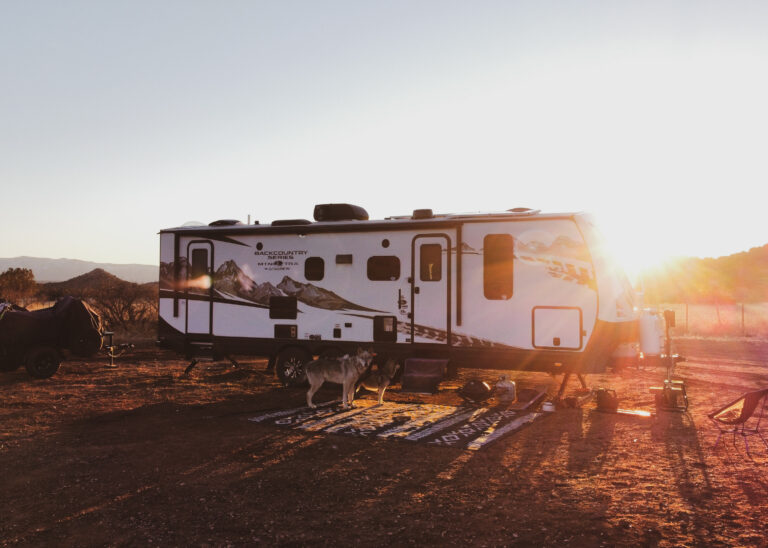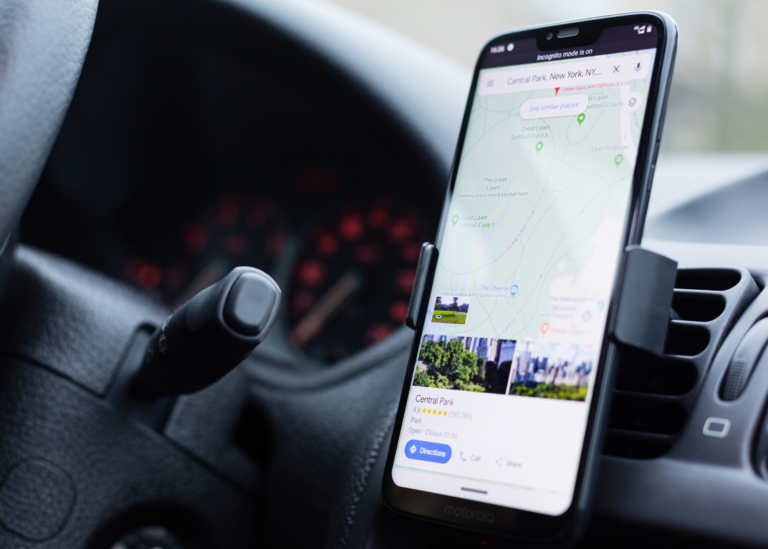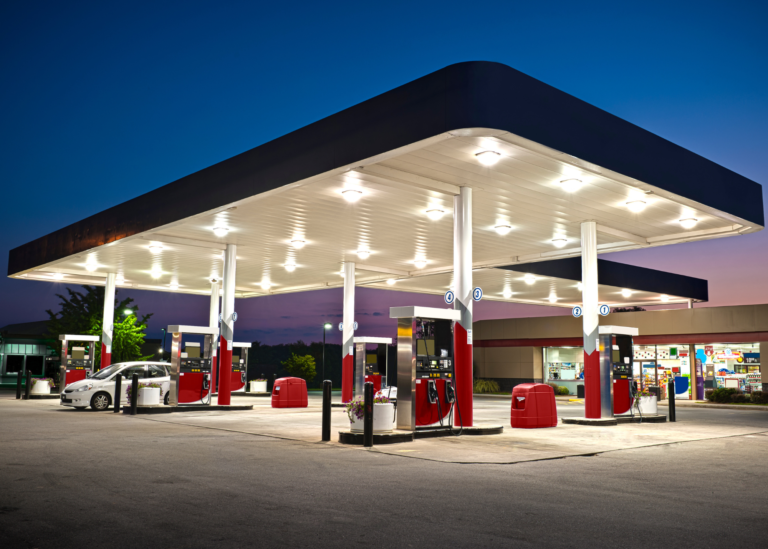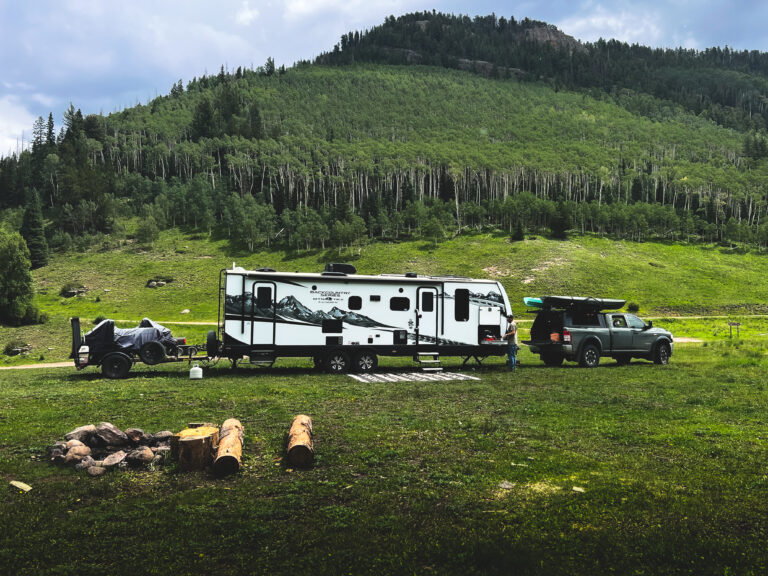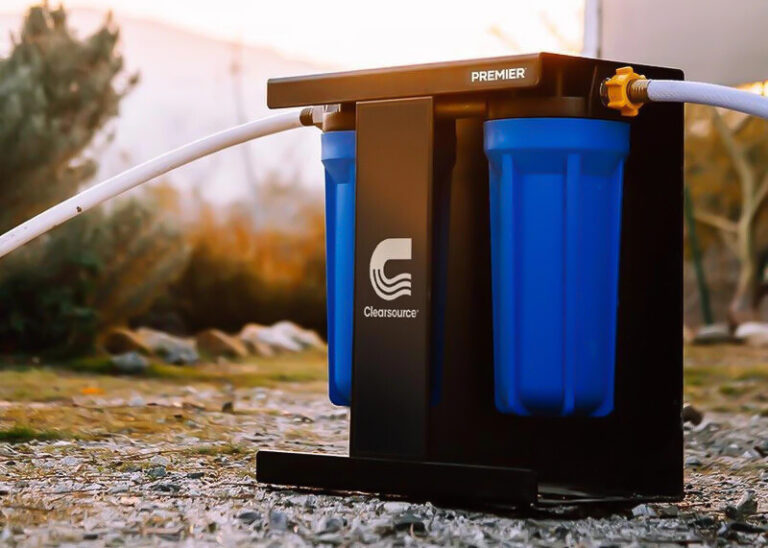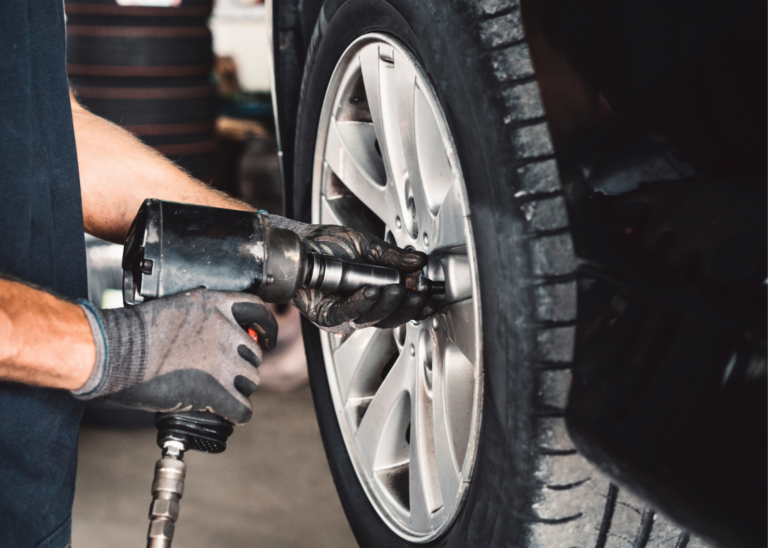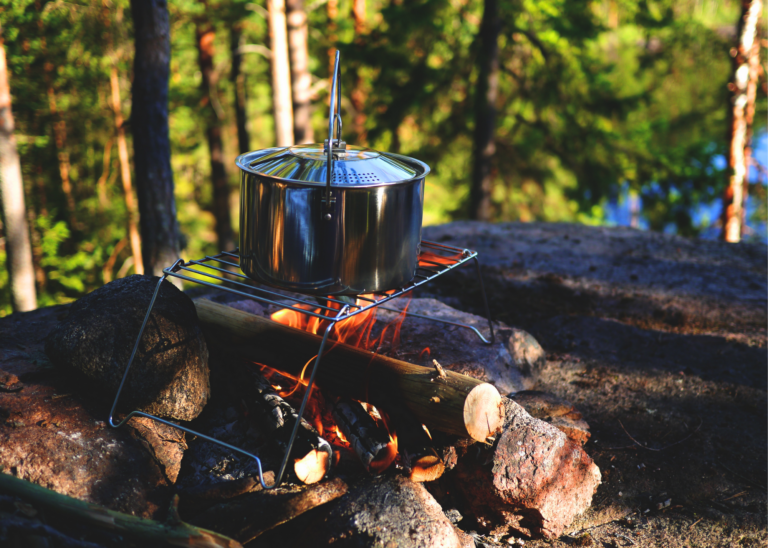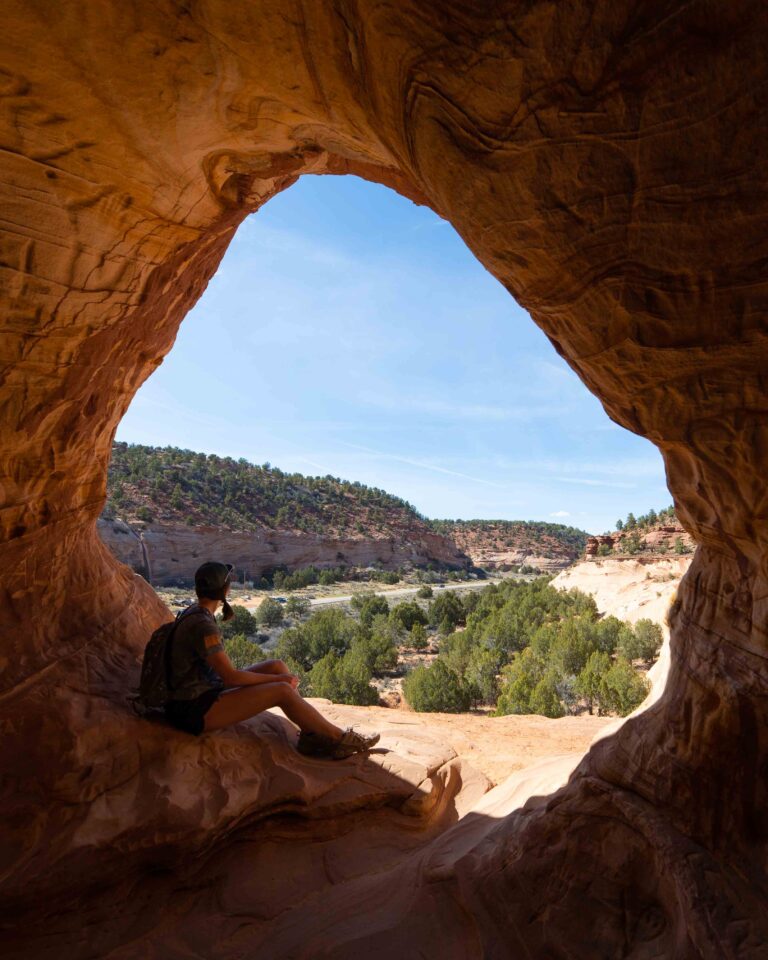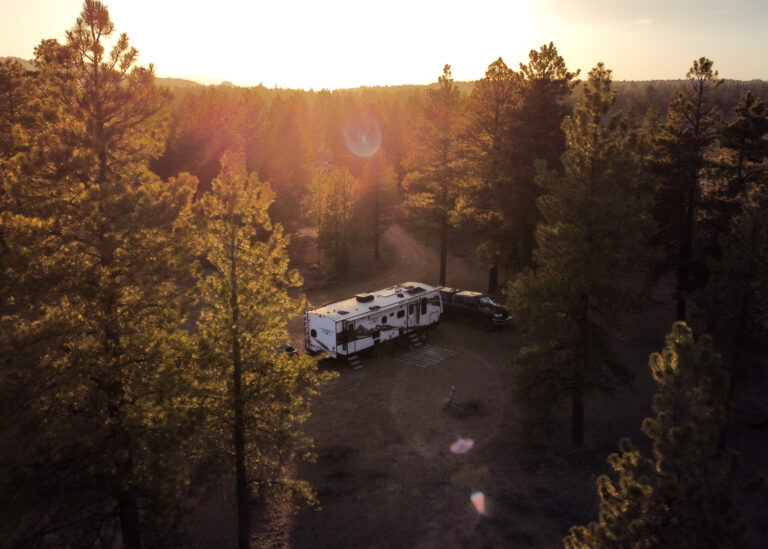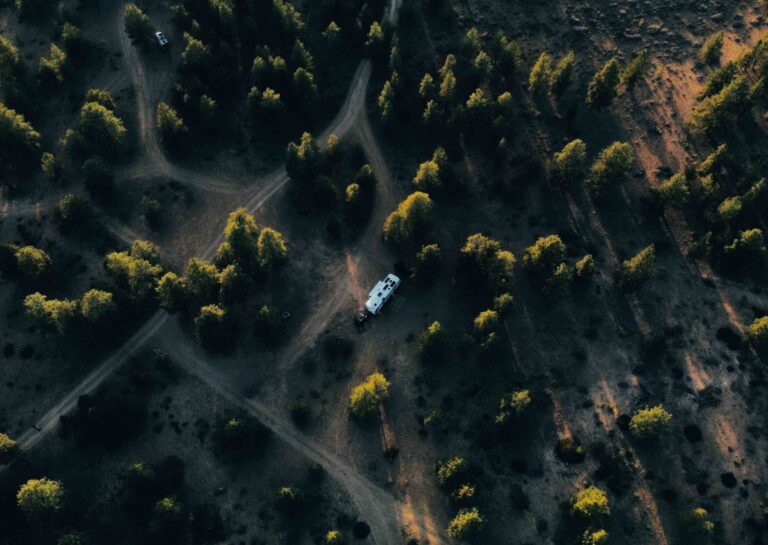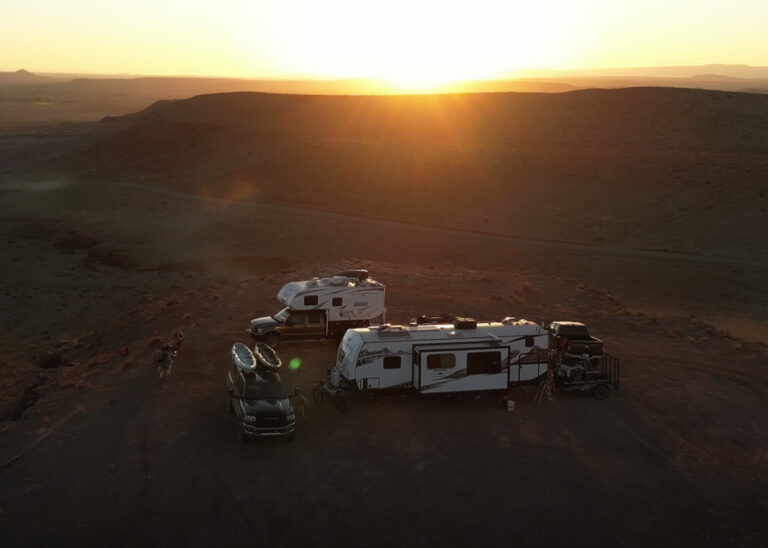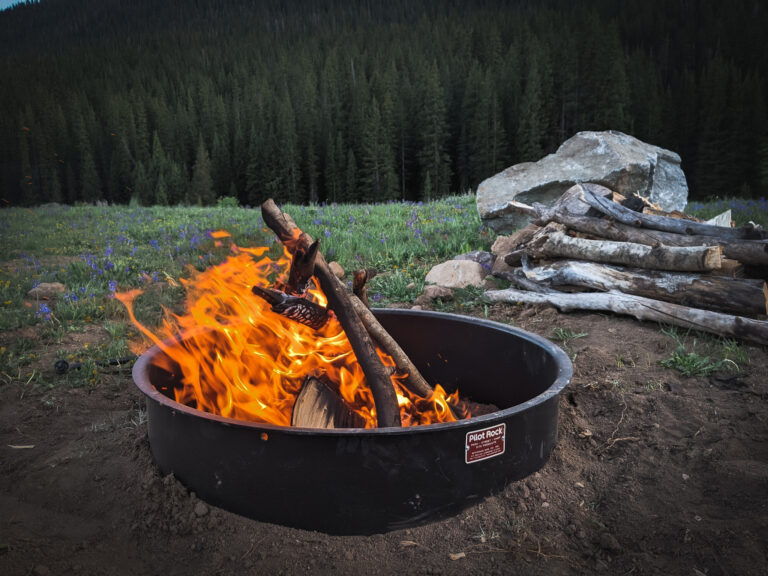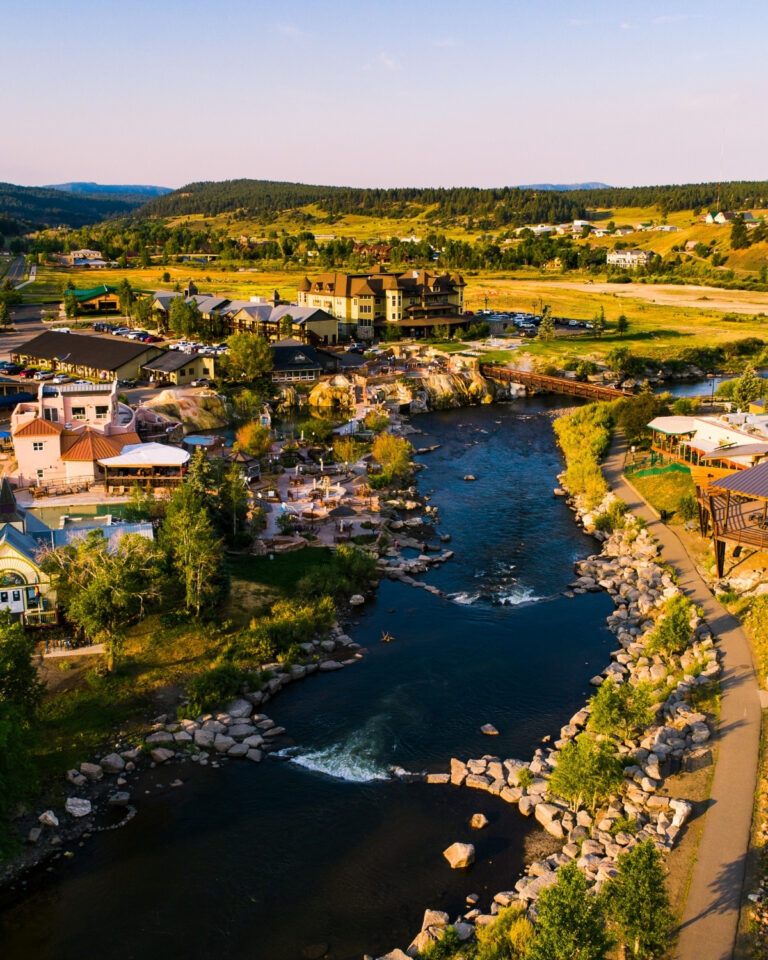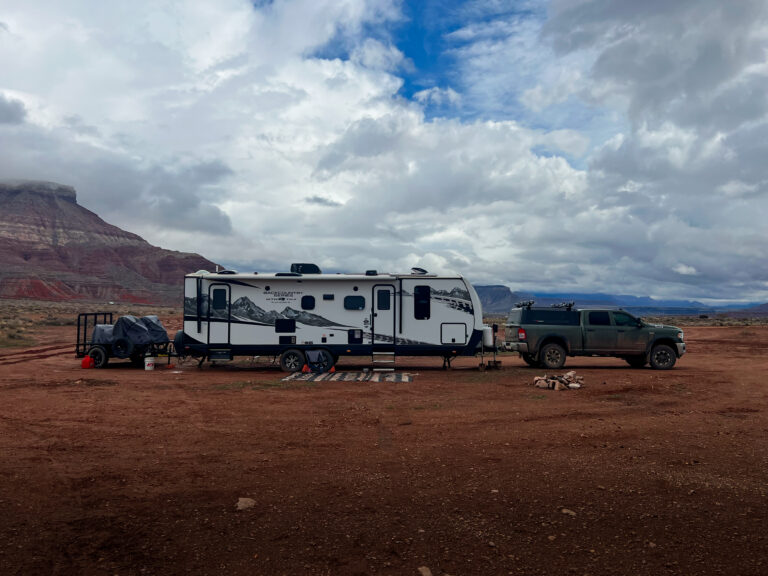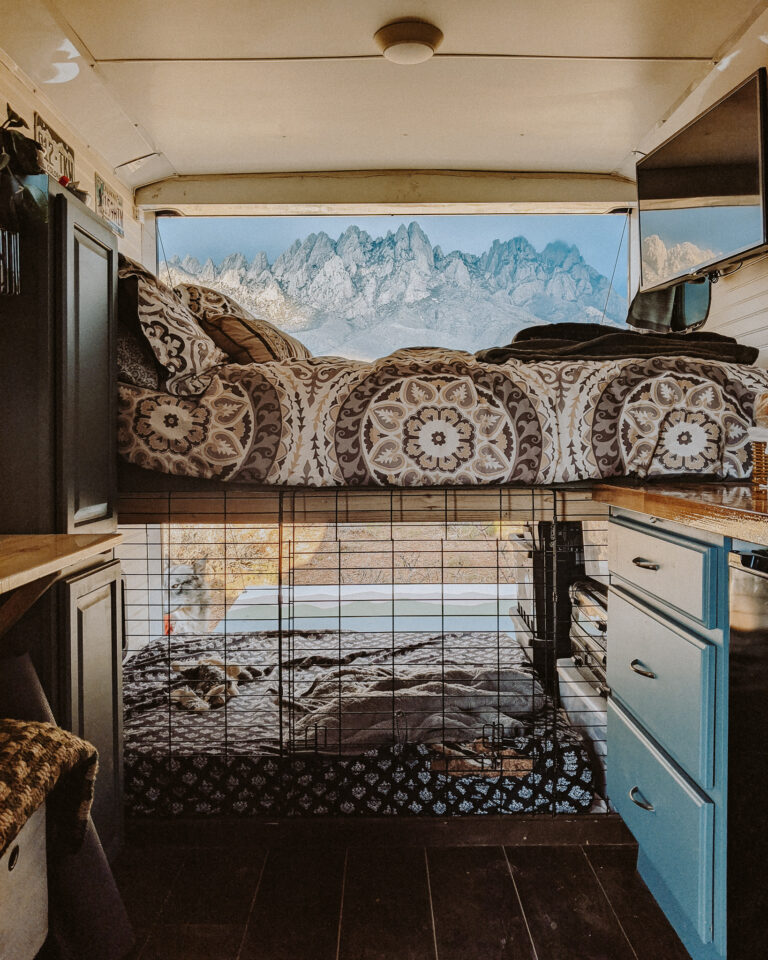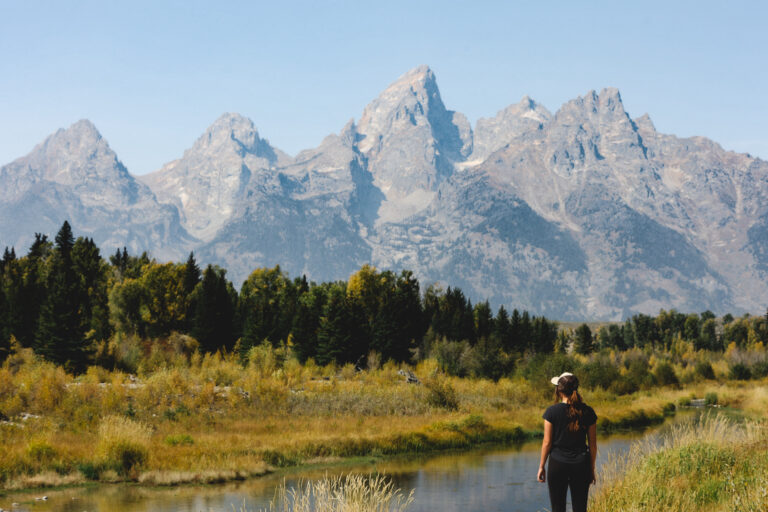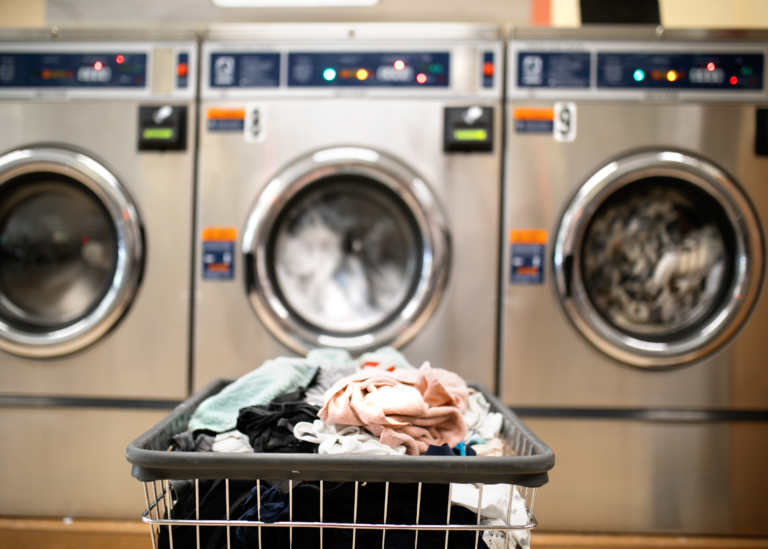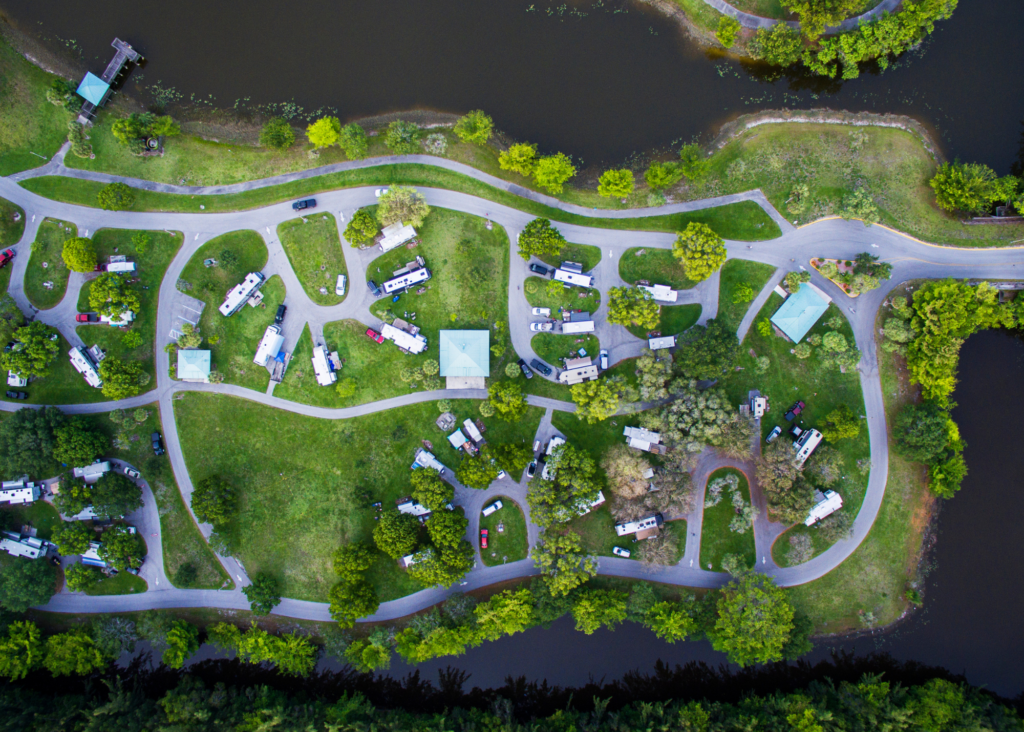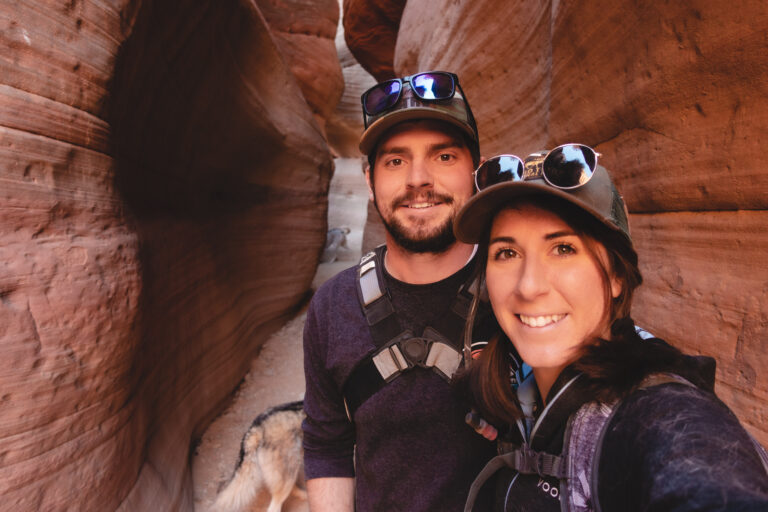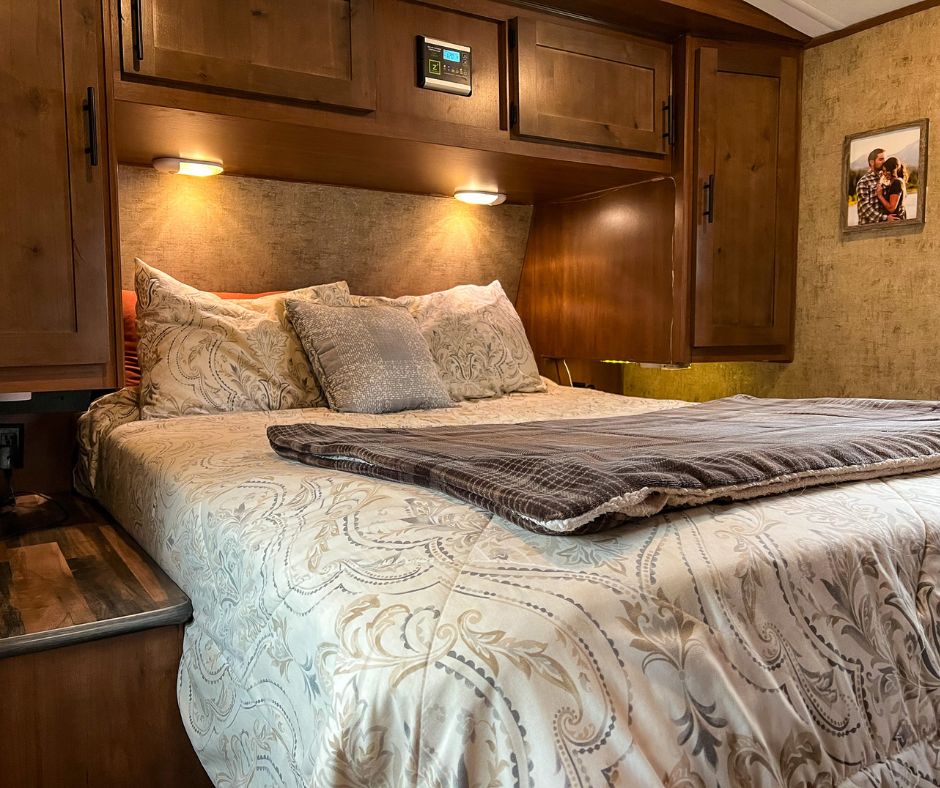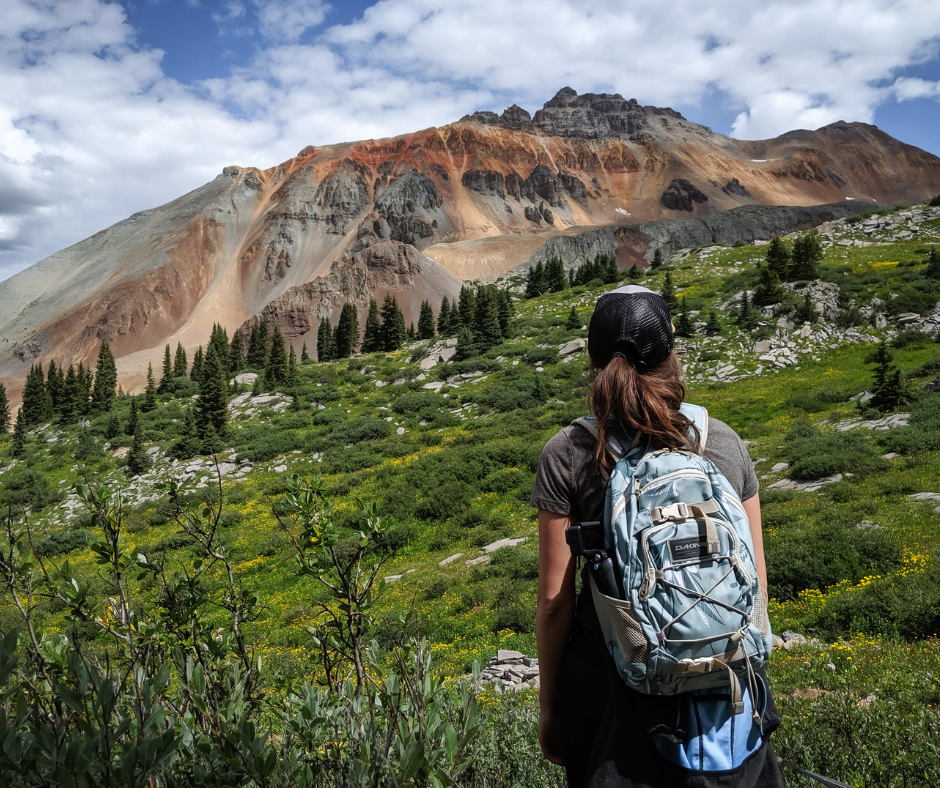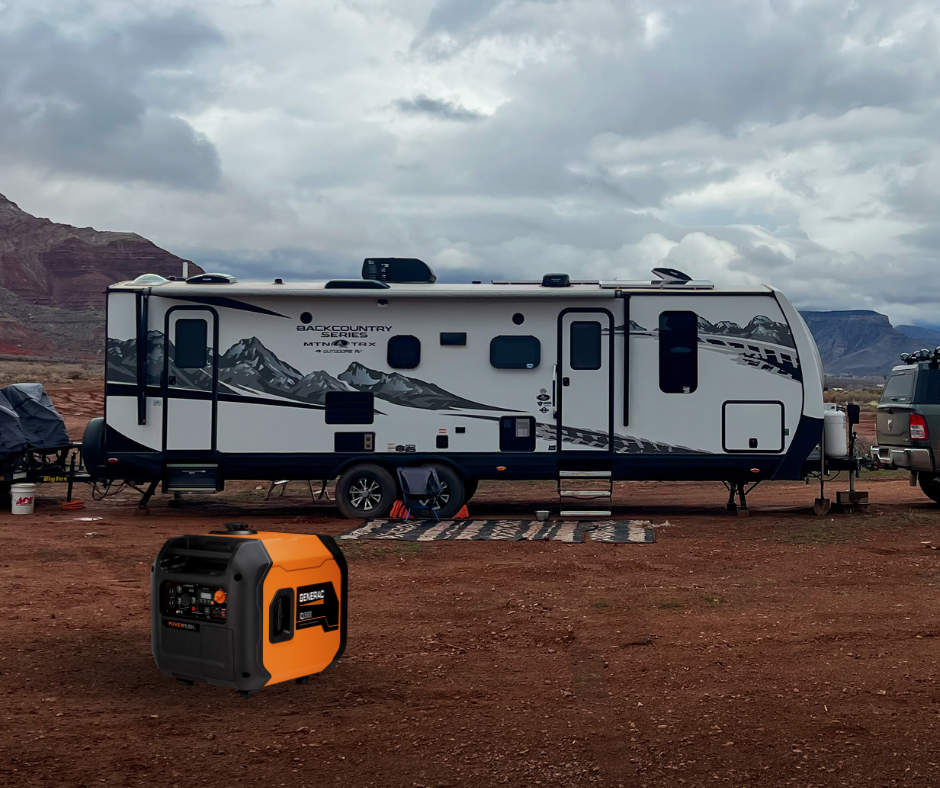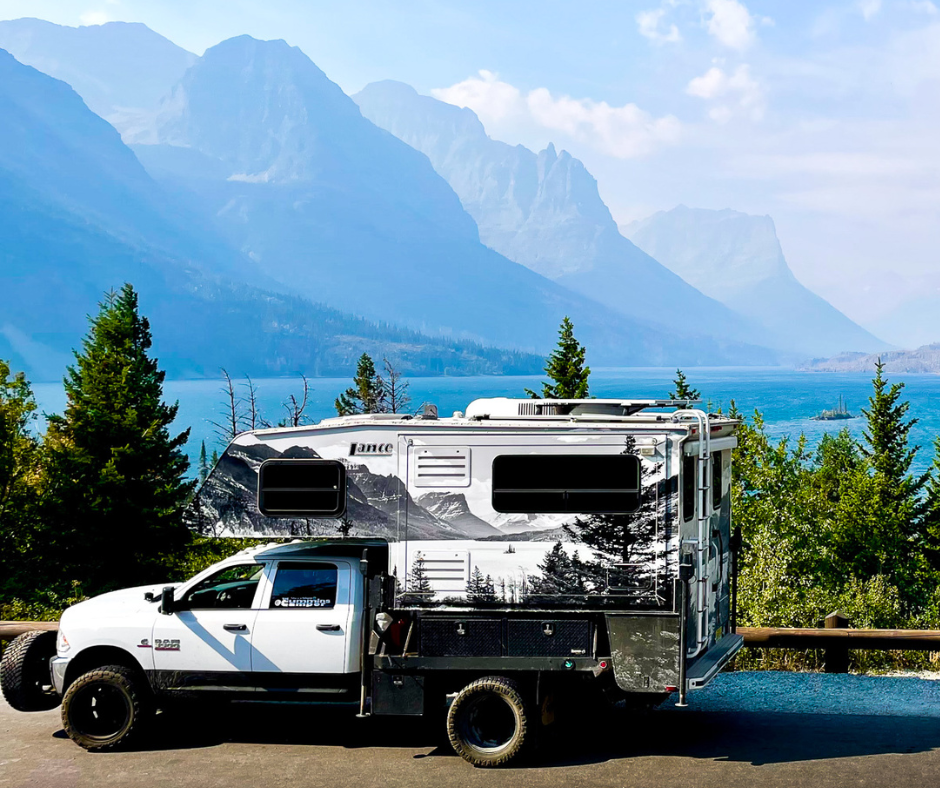21+ Creative Ways to Travel Cheap while Full-Time RV Living

Table of Contents
ToggleHow to Live Cheap and Travel Full-Time in An RV
If you’re considering taking the leap into RV living, you may be wondering how on earth people afford to do it full-time. The truth is, cheap RV living is absolutely possible! In fact, full-time RVing can be an amazing way to travel and live more simply without breaking the bank. The key to making it work is to find opportunities to stretch your budget and make every dollar count.
Since 2019, we’ve been traveling full-time in our RV, and we’ve learned a thing or two about living cheaply on the road. And trust us, the cost of full-time RV living can be dirt cheap if you’re savvy about it!
In this guide, we’ll spill all the beans on how to save money while exploring the country, from snagging killer deals to finding free campsites, we’re sharing 22 of our best money-saving hacks for making living in an RV full-time ridiculously affordable.
What are the biggest expenses for Full-time RVers?
The biggest expenses for Full-time RVers can vary depending on a number of factors, including the size of their RV, their travel style, and how frequently they move.
That being said, some of the most common expenses for RVers include campsite fees, fuel, maintenance, and food. However, with careful planning and budgeting, these expenses can be managed and minimized.
At the same time, it’s important to note that one of the biggest advantages of full-time RVing is that you don’t have to worry about mortgage payments. As our experience shows, living without a mortgage can be incredibly liberating and can allow you to live your best life without breaking the bank.
By taking advantage of money-saving strategies and finding ways to stretch your budget, you can live your dream life on the road without sacrificing your financial stability.
20 Smart Strategies for Living Cheap in an RV while Traveling Full-Time
1. Camp for FREE by Boondocking
Boondocking is the ultimate way to get off the beaten path. Unlike traditional camping, where you’re limited to designated campsites with amenities and hookups, boondocking allows you to camp on public lands such as BLM and National Forest lads without any modern conveniences.
And the best part? It’s completely free! That’s right, you can set up camp in some of the most beautiful and secluded locations without spending a dime.
But where do you find free camping spots, you ask? With camping apps like Campendium, Freecampsites.net, and The Dyrt, you can easily locate some amazing spots to park your RV.
However, it’s important to research the regulations and rules for each camping location. While most locations are free, some may require a permit or have certain restrictions in place, so it’s always best to check beforehand.
2. Avoid the Crowds and RV During Off-Season
It may seem obvious, but many people don’t take this into consideration when they’re looking for places to travel.
If you plan on spending most of your time around National Parks or other high-traffic tourist destinations, things might get more expensive as there are fewer affordable attractions, groceries, and camping options available.
By carefully choosing a destination before you hit the road, you’ll have a much easier time sticking to a budget.
Don’t go somewhere just because it looks pretty or sounds exciting, do some research and find out what prices are like there. If you’re able to plan ahead, consider going to popular locations during a less busy time of year.
3. The Art of Following 70-Degree Weather
As a full-time RV traveler, one of the challenges you may face is managing the temperature inside your RV.
Extreme temperatures can make RV camping uncomfortable and can also increase your energy costs, especially if you’re using air conditioning or heating systems.
One way to reduce the need for air conditioning in the summer and minimize heating in the winter is by chasing seasonal weather changes.
For example, in the summer, you can travel to areas with cooler temperatures or higher elevations where the weather is milder. This can help you avoid the need for air conditioning and reduce your energy costs.
You can also seek out campsites with natural shade or that are located near bodies of water, which can provide a natural cooling effect.
When boondocking in the winter, you can travel to areas with warmer temperatures or lower elevations where the weather is milder. This can help you minimize the need for heating and reduce your energy costs.
4. Plan Your Travel Route to Budget for Gas
Gas prices are often an unpredictable and costly necessity. By planning ahead, you can avoid pricey toll roads and make sure you’re taking the most fuel-efficient route possible.
5. Find the Cheapest Gas Prices with These Apps
Fuel costs can be a significant expense for RVers, particularly during long trips. Fortunately, there are several smartphone apps available that can help you find the cheapest gas prices in your area and along your travel route. Here are a few apps that can help you save money on gas:
GasBuddy: GasBuddy is a free app that provides real-time information on gas prices at nearby gas stations. You can search by city, state, or zip code, and the app also includes a trip cost calculator that estimates how much you’ll spend on gas for your trip.
Waze: Waze is a popular navigation app that also includes gas price information. When you’re navigating to your destination, Waze will display gas prices at nearby gas stations, allowing you to easily compare prices and find the cheapest option.
6. Slow and Steady Wins the Race
One effective strategy many full-time RVers use to save money and stretch their budget is to adopt a slow and steady approach to traveling.
By taking the time to explore a particular area and staying put for a longer period, you can save money on fuel and camping fees.
Additionally, you can take advantage of local attractions and activities at a more leisurely pace, rather than feeling rushed to see everything in one go.
Slow and steady travel can also reduce wear and tear on your RV, minimizing the need for costly repairs.
7. Drive Shorter Distances for Cheaper RV Travel
When it comes to RV travel, one of the most significant expenses is fuel. So, if you want to save money while enjoying your RV vacation, driving shorter distances can be an effective strategy. Here are some reasons why:
Less fuel consumption: The shorter the distance you travel, the less fuel you will consume. This means that you will spend less money on gas, which can help reduce your overall travel expenses.
Lower maintenance costs: When you drive shorter distances, your RV or travel trailer will experience less wear and tear. This means that you will spend less money on maintenance and repairs in the long run.
More time to enjoy your destination: If you spend less time driving, you will have more time to explore your destination. This means that you can spend more time enjoying the local attractions, food, and culture.
Less stress: Driving long distances can be tiring and stressful. By driving shorter distances, you can reduce your stress levels and arrive at your destination feeling refreshed and ready to explore.
8. Invest in a Water Filter for Pure and Tasty RV Water
When you’re traveling full-time in an RV, access to clean and safe drinking water is essential. While many RV parks and campgrounds offer potable water sources, the quality of the water can be questionable.
Some water sources may contain bacteria, sediment, or other contaminants that can affect taste, odor, and overall water quality.
Many RVers report that water from their RV tanks can have a distinct metallic or chemical taste, which can be off-putting.
A good water filter can help remove these unwanted tastes and odors, making your water more enjoyable to drink.
The biggest advantage of investing in a water filter for your RV is that it can save you money in the long run.
When you travel in your RV, you may find that you need to buy plastic water bottles or refill water jugs at grocery stores to ensure you have clean drinking water.
Over time, these expenses can add up and become a significant drain on your budget.
9. Roll Up Your Sleeves and do your Own Maintenance and Repairs
When you’re living full-time in an RV, maintenance and repairs are inevitable. However, taking your RV to a mechanic or dealership for every little issue can quickly become expensive. That’s why learning to do your own maintenance and repairs can help you save money.
One of the best DIY maintenance tasks you can learn to do on your own is an oil change. Instead of paying a mechanic to do it, you can easily learn how to change your tow vehicle’s oil yourself. This can save you anywhere from $50 to $100 per oil change, depending on your truck’s engine size.
Other simple maintenance tasks you can do on your own include checking and replacing air filters, spark plugs, and windshield wipers. These tasks are relatively easy to learn, and you can find plenty of tutorials on YouTube university to guide you through the process.
Having essential tools and equipment on hand, such as a portable air compressor, can help you tackle unexpected maintenance issues on the road. Learn more about our favorite upgrades for full-time RV living to help make your experience more enjoyable and comfortable.
10. Spice Up Your Life and Embrace Cooking in Your RV
Exploring new foods and cuisines can be one of the most exciting parts of RV travel, but it can also quickly add up and strain your budget. While it’s tempting to indulge in local restaurants and eateries, it’s important to find ways to keep your food costs down if you want to save money on the road.
One way to do this is by preparing your own meals using simple, budget-friendly ingredients. Look for recipes that work for your family and are easy to make in a small RV kitchen. To make mealtime more enjoyable, consider cooking on the grill or over an open fire.
11. Opt for Free Things to Do
One of the best things about RV travel is the opportunity to explore new places and have unique experiences. However, these experiences can often come with a high price tag. Fortunately, there are many fun things to do while traveling that won’t put a major dent in your wallet.
Some great free things to do while RVing include hiking, biking, and visiting local parks. Many national and state parks offer free or low-cost admission and provide opportunities for outdoor activities like hiking and biking.
Additionally, many cities and towns have public parks and walking trails that are free to use and offer a chance to explore the local area.
12. Find Affordable Internet Options on the Road
Staying connected on the road is essential for many full-time RVers, but finding affordable internet options can be a challenge. Fortunately, there are several options available that can help you stay connected without breaking the bank.
One of the most affordable options for internet for full-time RVers is a mobile hotspot. Many cell phone carriers offer hotspot plans that allow you to connect to the internet using your cell phone’s data plan.
These plans typically cost around $20 to $40 per month and provide a reliable internet connection wherever you have cell phone coverage.
Satellite internet is another option for RVers who need a reliable internet connection on the road. While satellite internet can be expensive, it provides a strong connection even in remote areas where cell phone coverage is weak or non-existent.
One notable option for satellite internet is Starlink, a satellite internet service provided by SpaceX. The service requires a one-time equipment fee of around $500 and a monthly subscription fee of $150 for RVers.
13. Travel Light and Keep Your RV Clutter-Free
Traveling in an RV can be an exciting adventure, but it’s important to keep in mind that space is limited. To make the most out of your travels and reduce the weight of your travel trailer, it’s crucial to travel light and keep things organized.
Downsize Your Wardrobe: Pack clothes that can be mixed and matched easily and can be worn in different situations. Keep your wardrobe simple and versatile, and avoid bringing clothes that are only suitable for one occasion or activity.
Embrace Minimalism: Declutter regularly and keep only the essentials. Get rid of items that you haven’t used in the past few months, and avoid hoarding unnecessary items.
Go Digital: Digitize your books, music, and movies, and store them on a laptop or an external hard drive. This will save space and reduce clutter in your RV.
14. Harness the Power of the Sun with Solar Power
Harnessing the power of the sun with solar power is an excellent way to save money while traveling in an RV.
By installing solar panels on the roof of your RV, you can generate electricity from the sun’s energy and reduce your reliance on traditional power sources.
One of the most important components of a solar power system for an RV is the battery bank, which stores energy generated by the solar panels for use later on.
When it comes to choosing the right battery for your RV solar power system, opt for lithium batteries. Lithium batteries are long-lasting compared to traditional lead-acid batteries, which can lose their capacity over time.
15. RV Memberships Can Help You Travel on a Tight Budget
If camping off the grid is not your thing, there are still ways to save money while staying at an RV park or campground. Getting a campground membership means you can stay at your favorite campgrounds for cheaper than if you were paying on a nightly basis.
You’ll get access to all kinds of campgrounds with amenities that range from swimming pools and hot tubs, shuffleboard courts and game rooms, laundry facilities, and even dog parks!
There are a ton of great options out there, but a few of our favorite campground memberships include:
- Thousand Trails: This membership program offers access to a network of RV parks and campgrounds across the United States for a flat annual fee. They offer various membership levels and pricing options, making it possible to find an affordable plan that meets your needs.
- Passport America: This membership program offers up to 50% off on camping fees at participating campgrounds in the United States, Canada, and Mexico. The membership fee is reasonable, and there are no restrictions on the number of times you can use the discount.
- Escapees RV Club: This membership program offers discounts on camping fees, fuel, and other RV-related expenses. They also offer access to a network of RV parks and campgrounds, as well as educational resources and social events for members.
- Harvest Hosts: This membership program allows RVers to camp overnight at participating farms, wineries, and breweries across the United States for a small fee. The annual membership fee is relatively low, and it can be an excellent way to save on camping fees while enjoying unique and memorable experiences.
16. Avoid Grocery Shopping in Rural Areas
When traveling full-time in an RV, one thing that many people forget to consider is the cost of food. Grocery prices can vary greatly depending on the location, and it’s not uncommon for prices to be higher in tourist towns due to increased demand and limited supply.
As a result, grocery shopping in rural areas can end up being quite expensive, particularly if you’re trying to stick to a budget. A great money-saving tip is to fill your RV refrigerator and pantry before you leave larger towns.
17. Save Money on Groceries and Shop in Bulk
You can save big bucks when you buy in bulk or shop at discount stores like Walmart or Sam’s Club. This way, you can avoid the expense of eating out, and reduce unnecessary gas station snack purchases on travel days. Plus, this will help you have a meal plan established, making sure have plenty of food for all your meals.
18. Buy a Used RV for Full-Time RV Living on a Budget
If you are planning on living and traveling in an RV full-time, it is important to choose an RV that is both affordable and functional. While new RVs can be expensive, buying a used RV is a great option for those on a budget.
Heck, we started our full-time journey in a self-converted cargo trailer. You don’t have to have the nicest camper to live a fulfilling life on the road.
Here are some things to consider when looking for a used RV for full-time living:
- Large water and waste tanks: Having large water and waste tanks is a must-have feature that allows you to camp for longer periods of time without the need for hookups. This is especially important if you enjoy boondocking or dry camping.
- A rig pre-wired for solar power: Another important feature to consider is whether the RV is pre-wired for solar power. While this is not a requirement, having a travel trailer that is pre-wired for solar power makes it easier to set up solar panels and take advantage of the power of the sun to recharge your batteries.
- A generator or inverter and a large battery bank: having a generator or inverter and a large battery bank is also essential. This allows you to have a reliable source of power on those rainy days when power runs low.
Pro Tip: Four-season travel trailers usually have all these amenities and we highly recommend them for full-time RV living.
19. Enjoy Discounted Exploring with a National Parks Pass
As a full-time RV traveler, exploring the national parks can be one of the most exciting experiences. However, the cost of entry fees can quickly add up, especially if you plan to visit multiple parks throughout the year. One way to save money while exploring the national parks is by purchasing an America the Beautiful Pass.
The America the Beautiful Pass, also known as the National Parks Pass, is a year-long pass that provides access to more than 2,000 federal recreation sites across the United States, including national parks, forests, and wildlife refuges.
Purchasing the National Parks Pass can save you a considerable amount of money if you plan to visit multiple parks throughout the year. The pass costs $80 annually, which is less than the cost of a single visit to many national parks. The pass can be purchased online or at any federal recreation site that charges an entrance fee.
20. Make Laundry Day Affordable by Bringing your own Detergent
Doing laundry while on the road can be a hassle, and it’s easy to overspend at the laundromat. But, you don’t have to sacrifice your budget for clean clothes.
Our biggest tip is to bring your own detergent to save money on overpriced laundry products. And if you have a really tight budget, skip the dryer and let your clothes air-dry.
21. Make Money While RVing with Workamping
Workamping is a great way for full-time RVers to make money while on the road. Workamping is a combination of work and camping, where RVers work at a campground or RV resort in exchange for a free or discounted site to park their RV.
To find workamping opportunities, start by checking out job listings on websites like Workamper News, which specializes in workamping jobs.
You can also check with specific campgrounds or RV resorts in areas you plan to visit, as many offer workamping positions.
Some RVers also find workamping opportunities through word-of-mouth referrals or by networking with other RVers they meet on the road.
22. Be Prepared for Unexpected Expenses
An emergency fund is a great way to protect yourself against unforeseen surprises. Prepare to have a savings account with enough funds to pay for unexpected breakdowns or emergencies.
Things like fixing your flat tire or repairing your tow vehicle can happen when you least expect it. Think of it as a financial cushion to help you handle any emergencies that come up.
What is a Good Budget for Full-Time RV Living?
The beauty of full-time RV living is that it can be tailored to fit any budget. Whether you’re a luxury seeker or a budget-conscious traveler, there’s an RV lifestyle that can work for you.
For those who want to indulge in the finer things in life, you can park your RV at upscale resorts, enjoy fancy dinners out, and participate in pricey activities.
But for those who want to save money, boondocking under the stars and cooking meals over the campfire is the way to go. And the best part? You can do it all for as little as $1,000 a month! Most people fall somewhere in between, traveling on a budget of $2,000 or $5,000 a month.
By planning ahead and watching your spending, you can make your dream of full-time RV living a reality.




